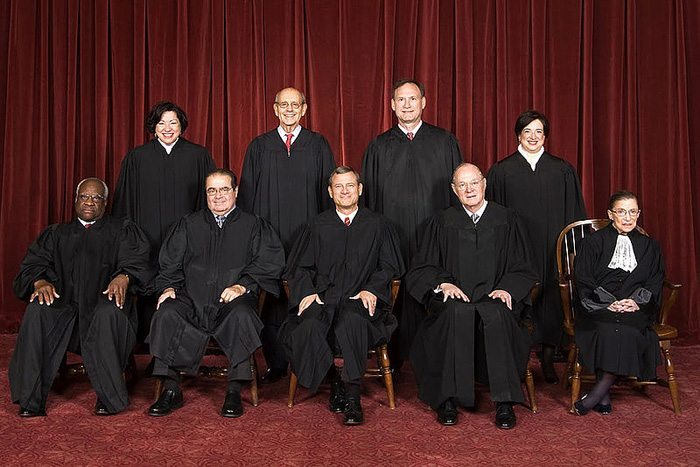Supreme Court Takes Up Challenges to Obamacare Birth Control Benefit
The Supreme Court on Friday announced it would review a series of cases brought by religiously affiliated nonprofits challenging the accommodation process for complying with the Affordable Care Act’s birth control benefit.

The Supreme Court on Friday announced it would review a series of cases brought by religiously affiliated nonprofits challenging the accommodation process for complying with the Affordable Care Act’s birth control benefit.
The Roberts Court agreed to take up seven cases, including that of Little Sisters of the Poor, one of the first nonprofits to challenge the process for accommodating businesses claiming to have a religious objection to offering health insurance plans that cover contraception, as required under federal law.
Those organizations argue that the task of completing the government’s form that self-certifies them as religious employers—and makes them eligible for an accommodation to the benefit—“triggers” or “facilitates” the ability of their employees to get contraceptive coverage elsewhere. That, the plaintiffs argue, makes them complicit in what they believe to be a sinful act: supporting contraception. Such an act, they believe, violates their rights under the Religious Freedom Restoration Act (RFRA).
“These cases are not about whether employers have to provide coverage for birth control: the government has already exempted them from doing so,” said Gregory Lipper, senior litigation counsel for Americans United for Separation of Church and State, in a statement. “But the plaintiffs refuse to take yes for an answer. Instead, they claim the right to prevent their employees from getting contraceptive coverage from third parties, who will be providing the coverage at no cost to—and with no involvement from—the plaintiffs.”
“Far from raising actual burdens on religious exercise, these cases make a mockery of religious freedom,” Lipper said.
The federal courts have largely rejected the claims by nonprofits that filling out the government’s form is a violation of RFRA. Seven of eight appeals courts, including the conservative Fifth Circuit Court of Appeals, have ruled for the Obama administration, holding that the accommodation was not a substantial burden on the employers’ religious beliefs. Only one appeals court, the Eighth Circuit, has held the contrary.
This will be the second time the Roberts Court has considered whether the birth control benefit in the Affordable Care Act violates federal law. In 2014, the court held 5 to 4 that secular, for-profit companies could object to complying with the benefit in Burwell v. Hobby Lobby. Writing for the majority, Justice Anthony Kennedy relied heavily on the presumed reasonableness of the accommodation process in holding that businesses like Hobby Lobby should also be able to access the accommodation.

